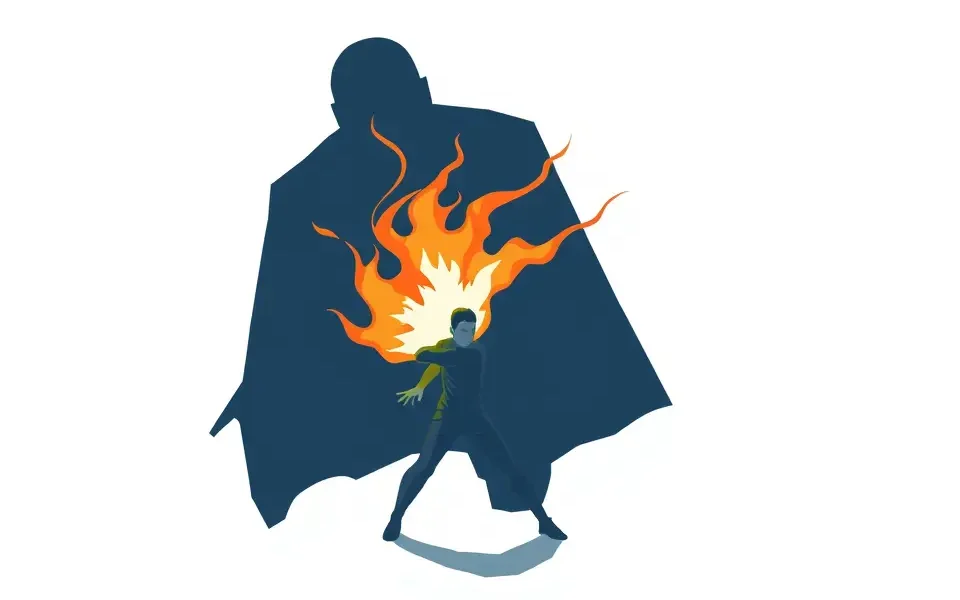Novak Djokovic, a name synonymous with Grand Slam titles and relentless dominance, recently opened up about the emotional challenges he faced during his rise to the top of the tennis world. In a candid interview, the Serbian champion revealed that he often felt like “the unwanted child” in comparison to the widely adored Roger Federer and Rafael Nadal. This sentiment, born from a perceived lack of fan support and the disruption he caused to the established Federer-Nadal narrative, fueled his drive to become the record-breaking champion he is today.
The Rise of the “Big Three”
Before Djokovic’s emergence as a dominant force, the tennis landscape was largely defined by the rivalry between Roger Federer and Rafael Nadal. Federer, with his elegant style and effortless grace, captured the hearts of fans worldwide. Nadal, the fiery Spaniard with his unmatched intensity and clay-court prowess, presented a compelling contrast. Their battles were epic, their rivalry captivating, and their fan bases deeply entrenched.
Then came Djokovic, a determined Serbian with a game built on relentless defense, incredible flexibility, and an unwavering belief in his abilities. He broke through the Federer-Nadal duopoly, challenging their dominance and staking his claim to the top spot. While he earned his place among the elite, Djokovic often felt like an outsider, struggling to gain the same level of adoration as his rivals.
Feeling Like an Outsider
Djokovic’s journey to the pinnacle of tennis was marked by a persistent feeling of being the “third wheel.” In a recent interview with Slaven Bilic on “Failures of Champions,” he confessed, “I felt like the unwanted child in the trio. I often questioned why that was the case, and it was painful.”
Despite his remarkable achievements, including surpassing Federer and Nadal in Grand Slam titles, Djokovic often faced hostile crowds and a perceived lack of support. He attributed this to several factors:
- The Established Rivalry: Federer and Nadal had already forged a deep rivalry before Djokovic’s ascent, creating a strong sense of loyalty among their fans. As Djokovic himself stated, “The two of them had already developed a rivalry before I came along because Nadal broke through a few years before me.”
- Geographical and Cultural Factors: Djokovic suggested that the Western European origins of Federer (Switzerland) and Nadal (Spain) contributed to their greater popularity in the Western world. “They come from Switzerland, from Spain, so Western powers,” Djokovic explained. “There are these orientations and there are affiliations.”
- Disrupting the Narrative: Djokovic’s bold declaration that he intended to become number one was not always well-received. “I never achieved the same level of adoration as Federer and Nadal because, in a way, I wasn’t supposed to disrupt their narrative,” he said. “I was the third man who boldly declared, ‘I’m going to be number one.’ Not everyone welcomed that.”
Attempts to Win Over the Crowd
Early in his career, Djokovic was known for his on-court antics and impersonations of other players, which were sometimes perceived as arrogant or disrespectful. As he matured, he attempted to soften his image and connect with fans. He adopted a signature gesture of miming pushing his heart out to each corner of the stadium after victories, hoping to win over the crowd.
However, these efforts proved largely ineffective. “I thought changing my demeanour might win them over, but that proved ineffective too,” Djokovic admitted. Despite his attempts to connect with audiences, the feeling of being an outsider persisted.
A Constant Battle
Djokovic’s career has been a constant battle, not just against his opponents on the court but also against the perception that he was somehow less deserving of the fans’ affection. He often faced louder cheers for his rivals, even when playing in neutral venues. This created a unique challenge for Djokovic, who had to overcome not only the skill and strategy of his opponents but also the psychological impact of feeling like the underdog.
The Impact on Djokovic
The feeling of being an “unwanted child” had a profound impact on Djokovic, fueling his determination to prove himself and achieve greatness. He channeled his frustration and disappointment into relentless training and unwavering focus, pushing himself to become the best player he could be.
Djokovic’s mental fortitude is one of his greatest strengths. He has a remarkable ability to stay calm under pressure, to block out distractions, and to maintain his focus even when facing adversity. This mental toughness, honed through years of battling for acceptance, has been instrumental in his success.
Respect for His Rivals
Despite the emotional challenges he faced, Djokovic has always maintained a deep respect for Federer and Nadal. He acknowledged the significant impact of their rivalries on his career development, stating that they pushed him to become a better player.
“Just because someone is my biggest rival doesn’t mean I wish them harm, hate them, or want to do anything else on the court to defeat them,” Djokovic said. “We fought for the win, and the better player won.”
He also revealed that he has always gotten along better with Nadal than with Federer. “I’ve always respected both Federer and Nadal; I’ve never said a single bad word about them and never will. I looked up to them and still do. But I’ve always gotten along better with Nadal.”
Djokovic’s Legacy
Novak Djokovic’s career is a testament to his extraordinary talent, unwavering determination, and incredible mental strength. He has overcome numerous obstacles, both on and off the court, to become one of the greatest tennis players of all time.
His achievements are staggering:
- Record Grand Slam Titles: Djokovic holds the record for the most Grand Slam men’s singles titles with 24, surpassing Federer (20) and Nadal (22).
- Record Weeks at World No. 1: He has spent a record 428 weeks as the world number one, solidifying his place as the dominant force in men’s tennis.
- Career Golden Masters: Djokovic is the only player to have completed the Career Golden Masters, winning all nine ATP Masters 1000 tournaments.
- Record ATP 1000 Titles: He holds the record for the most ATP Masters 1000 titles with 40.
- Olympic Gold Medal: Won the Olympic Gold medal at the 2024 Paris Olympics, adding to his bronze medal from the 2008 Beijing Olympics.
Beyond the numbers, Djokovic’s legacy is one of resilience, perseverance, and the triumph of the human spirit. He has shown that it is possible to overcome adversity, to challenge the status quo, and to achieve greatness, even when facing seemingly insurmountable obstacles.
A Lasting Impact
Djokovic’s story resonates with anyone who has ever felt like an outsider, who has ever been underestimated, or who has ever had to fight for recognition. He has inspired millions around the world with his unwavering belief in himself, his dedication to his craft, and his ability to overcome adversity.
As the sole active competitor from the “Big Three,” Djokovic continues to defy expectations and push the boundaries of what is possible in tennis. His journey, marked by both triumph and tribulation, serves as a powerful reminder that true greatness is not just about talent but also about character, resilience, and the unwavering pursuit of one’s dreams.
Even if he initially felt like the “unwanted child,” Novak Djokovic has undoubtedly earned his place as one of the most celebrated and respected figures in the history of tennis. His impact on the sport, and on the hearts of fans around the world, will be felt for generations to come.








No Comment! Be the first one.